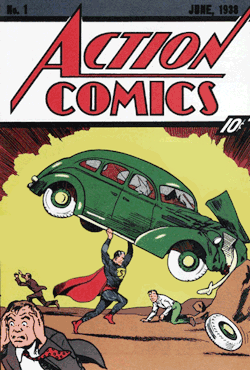Quíron
Beings - Greek mythology
Card 024
Battle Area:
- Water = 00
- Earth = 35
- Heaven = 00
Attack and Defense
- Wisdom = 20
- Dexterity and Strength = 35
- Powers = 10
- Fire = 10
Game
NUC Cards is a board game. With trays representing the opponents' lands and the battlefield.
The characters exist timelessly. In one era, historical, mythological and literary characters meet in this game.
An epic oxygen game of great kings, notable warriors, heroes and anti-heroes, mighty magicians and gods between creatures and beings ...
Sign up and get access to rules details and more cards.
Collect!
Quíron
Beings - Greek mythology
Chiron (Greek: Χείρων, translated Kheíron, "hand"), in Greek mythology, was a centaur, considered superior by his own peers. Unlike the rest of the centaurs, who, like satyrs, were notorious for being undisciplined drunkards, offenders without culture, and prone to violence when drunk, Chiron was intelligent, civilized and kind, and famous for his knowledge and skill in medicine.
Story
According to an archaic myth Chiron is the son of Cronus (Saturn, for the Romans), who, having assumed the form of a horse to hide from his wife, Reia, impregnated the nymph Filira. The lineage of Chiron was also different from the other centaurs, who were children of the sun and the clouds of rain; the Greeks of the classical period considered them to be the fruit of the union between King Ixion, permanently attached to a disc of fire in Tartarus, and Nefele ("cloud"), which Zeus would have created in the form and likeness of Hera.
Life
Abandoned, Chiron was found by Apollo, who created him as an adoptive father and taught him all his knowledge: arts, music, poetry, ethics, philosophy, divinatory arts and prophecies, healing therapies and science. Traditionally it inhabited Mount Pelion. There he married Cariclo, also a nymph, who gave him three daughters: Hipe (Melanipe or Euippe), Endeis and Ocírroe, and a son, Caristo. Great healer, astrologer and a respected oracle, Chiron was regarded as the last of the centaurs, and highly revered as a teacher and tutor. Among his pupils were several heroes, such as Asclepius, Aristeus, Ajax, Aeneas, Aceton, Ceneus, Theseus, Achilles, Jason, Peleus, Télamon, Heracles, Ileu, Phoenix, and in some versions of the myth, Dionysus.
Death
His nobility is also reflected in the story that chronicles his death: Chiron would have sacrificed his life, thus allowing mankind to obtain the use of fire. This occurred during the visit of Herculeus to the cave of Folo, Mount Pélion, Thessaly, while visiting his friend during the fourth of his twelve works, in which he defeated Erimanto's Boar. While they were having a meal, Heracles asked for wine to accompany the food. Folo, who ate his raw food, was surprised. He had received from the god Dionysus a jar of a sacred wine previously, which was to be preserved for the rest of the centaurs until the time was right to be opened. At the request of Heracles, Folo felt constrained to offer the holy wine. The hero grabbed him from his hands and opened it, letting its vapors and aromas come out of the bottle and intoxicated the centaurs, led by Nesso, who were gathered outside the cave and immediately hurled stones and branches. Heracles fired several poisoned arrows at them to drive them away. One of them hit Chiron in the thigh. Now Folo came out of the depths of the cave, where he had taken refuge to observe the destruction, and as he drew one of the arrows from the body of one of the centaurs, he wondered how such a small thing could cause so much death and destruction. As he said this, he dropped the arrow from his hand on his hull, which killed him instantly.
The arrow did not kill Chiron, being the son of a titan, he was immortal, but it caused him terrible and ceaseless pains. It was thus for Heracles to make an agreement with Zeus, exchanging the immortality of Chiron for the life of Prometheus, who had robbed the fire of the gods and given it to men, and was therefore condemned to suffer forever, tied to a rock while a bird devoured his liver, which grew again the next day. Zeus, who had said that he would only release him if an immortal gave up his immortality and went to Hades, the kingdom of the dead, in his place, agreed, releasing Chiron from his suffering, to die quietly. The god honored him, placing him in the sky as the constellation we call Sagittarius (from the Latin sagitta, "arrow").
Chiron saved the life of Peleus when Acasto tried to kill it, stealing his sword and leaving it inside a forest, to be killed by the centaurs. Chiron would have returned the sword to Peleus. Some sources speculate that Chiron would originally be an exclusive god of Thessaly, later absorbed by the Greek pantheon in the form of a centaur.
NUC Cards ® 2019
Reasoning and strategy.
An advanced game of underground strategy in generation.















